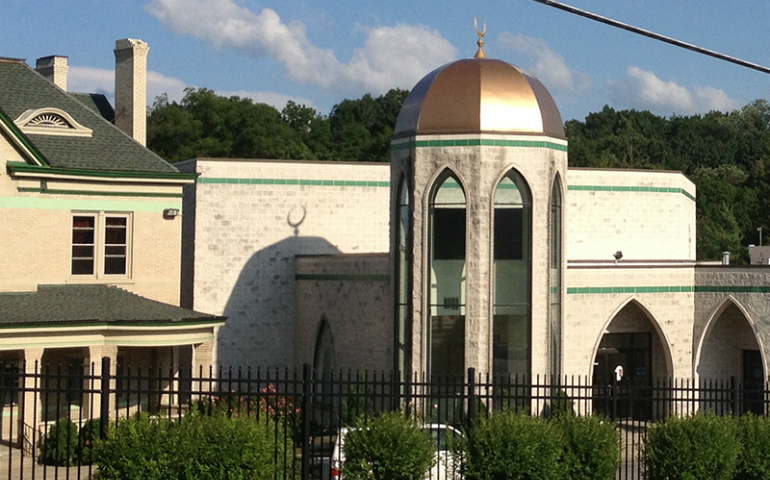
The Clifton Mosque in Cincinnati, Ohio (Creative Commons)
A Cincinnati area mosque announced it would join the burgeoning church sanctuary movement in the U.S., possibly becoming the first Islamic house of worship to do so.
The announcement came on the eve of the inauguration of President Donald J. Trump, who took a hard-line stance on immigration and proposed a national Muslim registry during his campaign.
"It took us no time to decide that this was the ethical and moral thing to do," said Imam Ismaeel Chartier, leader of the Clifton Mosque, which attracts upwards of 800 people to Friday prayers at its location near the Cincinnati Zoo. "We want to help reclaim humanity for everyone."
More than 800 U.S. congregations have joined the sanctuary movement — a promise by churches, synagogues and now, mosques, to shield undocumented immigrants from deportation and other government actions, even to the point of violating the law. Rev. Noel Anderson of the Church World Service, which organizes the sanctuary movement, said the Clifton mosque is likely the first mosque to actually open its doors to undocumented immigrants, but that other mosques have supported the movement in other ways.
Dallas-based Imam Omar Suleiman, an adjunct professor at Southern Methodist University, said Islamic history and scripture supports the participation of Muslims in the sanctuary movement.
"It starts with the verse in the Quran where God says we honor the children of Adam and every person is a child of Adam," he said. "And if the Prophet Muhammad, peace be upon him, and his followers had not been taken in by the people of Medina when they had to flee Mecca, he probably would have been killed in Mecca," essentially ending the religion before it spread.
Suleiman is helping to organize a national call to Muslim leaders and mosques to join the sanctuary movement. He is also helping to create a webinar that will provide them with resources to establish themselves as a sanctuary.
In Cincinnati, the Clifton Mosque will join Christ Church Cathedral, an Episcopal community in downtown Cincinnati, in shielding and supporting any immigrants who seek help from and pass a screening by a local branch of Interfaith Worker Justice.
Another five local houses of worship have pledged themselves "in solidarity with" the sanctuary congregations, and will potentially provide money, food, clothing, transportation and more. They include a Jewish congregation, a Methodist church and a nondenominational Christian church.
Chartier said his congregation, which was the victim of a pipe bombing about a decade ago, knows what it is to feel like "punching bags." That, he said, makes them suited to help those seeking sanctuary.
"We have really adopted a heavy policy of social justice," he said. "It was already a part of us, but we made it a foundational principle to found our community on."
Suleiman said mosques have "extra considerations" to ponder about the sanctuary movement.
"The same hatred that is channeling itself in one ugly way towards so many of the undocumented immigrants has also manifested itself in attacks on mosques," he said. "So one way of thinking is maybe we don’t need to bring more hardship when we are already so vulnerable. But my response to that is unless we all bond together we will all become weaker."



